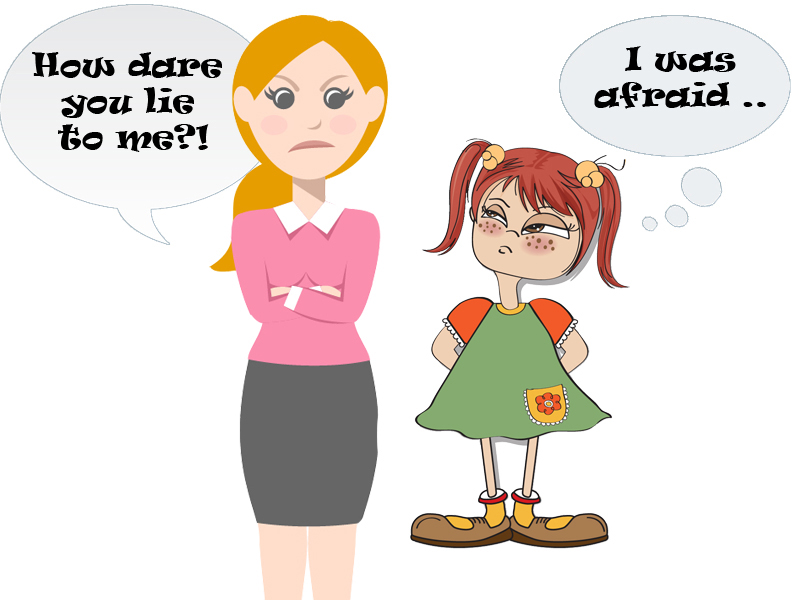
Kids lie for a number of reasons. How you react when your child lies is important to your relationship and to his moral development and ability to problem solve. Here are some tips from studies and articles to help you understand why your child lies and what to do when he does.
First of all, understand that lying is normal. It isn’t the right thing to do, but it’s normal. Adults do it all the time. Kids lie to establish their identity and to relate to peers. Your child may lie in response to peer pressure. Kids also lie to keep their lives separate from their parents. They may also do it to get attention, avoid hurting someone’s feelings, or to stay out of trouble.
According to some studies, lying is more of a problem-solving issue, not a moral one. If you yell at your child for lying about not doing his homework when he was really playing with his friends, you aren’t addressing the underlying issue of his not doing his homework before he plays. Your being upset about the lie doesn’t help your child change how he acts.

Avoid lecturing your child. They will just tune that out. Be specific about the problem, and state a consequence that you will follow through with. Keep your talk straight and to the point. Tell your child that you want to hear what is going on. He may not want to talk about it right now with you, but you need to create a safe environment for him to come to you when he’s ready.
If you catch your child in a lie, give yourself time to cool off before you address the situation. State the behaviors you saw. Your child may tell you why he acted that way, but remember you don’t know the reason(s) until he does. Just state what you saw. Speak in a matter-of-fact way, avoiding arguing. You can acknowledge the lie, but give the consequence for the behaviour, not for the lie.
Remember to focus on the behaviour that caused the lie, not on the lie itself. Your child needs to learn how to solve problems more effectively, and as a parent, you can provide the guidance your child needs to learn how to do just that.
Don't miss out on our articles! You will find them useful somehow, from parenting to exam preparation tips to best deals! Subscribe to our newsletter to receive updates on articles and best deals!
